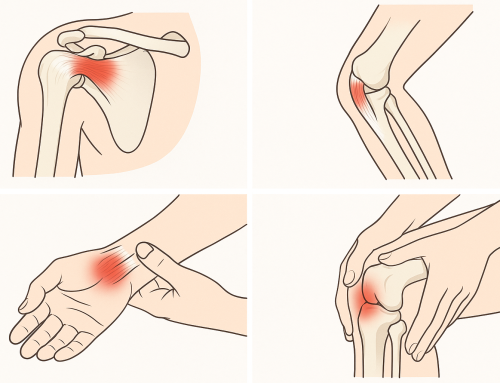Diabetes is a complex, chronic condition that affects millions of people worldwide. The good news is that advances in medical care and regenerative therapies are giving individuals with diabetes new tools to take control, improve outcomes, and reduce complications. In this blog post, we’ll explore how innovative treatments are changing the diabetes management landscape, and how Anchor Restorative Medicine in Irving, TX, is leveraging those treatments to help patients live healthier, more vibrant lives.
Understanding Diabetes and Why Advanced Treatments Matter
At its core, diabetes involves the body’s inability to use or produce insulin correctly, which leads to elevated blood sugar levels and long-term damage to organs, nerves, circulation, and more. Traditional treatment approaches often focus on medications (insulin, oral glucose-lowering agents), lifestyle change (diet, exercise), and monitoring (blood glucose, HbA₁c). These remain essential.
However, what’s emerging now is a new paradigm: managing not only the blood sugar but also the underlying tissue damage, nerve injury, circulation issues, and metabolic decline that often accompany diabetes. This is where cutting-edge treatments—such as regenerative medicine, hyperbaric oxygen, metabolic optimization, and personalized lifestyle therapy—make a difference.
What “cutting‐edge” treatment looks like in diabetes care
Here are several of the advanced strategies gaining traction in diabetes management:
-
Regenerative therapies: Treatments that support tissue repair, improve micro-circulation, support nerve healing, and reduce inflammation. When diabetes leads to complications like neuropathy or non-healing foot ulcers, engaging regenerative therapies may help promote recovery beyond conventional wound care alone.
-
Hyperbaric oxygen therapy (HBOT): For patients whose wounds or poor circulation are slowing healing, HBOT can enhance oxygen delivery to tissues, improve healing, and reduce the risk of complications.
-
Personalized metabolic/lifestyle optimization: Beyond “eat better, move more,” the next level is tailoring nutrition, exercise, sleep, and metabolic support (including hormone balance, inflammation control, and oxidative stress reduction) to each individual.
-
Monitoring & closed-loop control: While traditional glucose monitoring remains central, newer technologies, combined with an integrated care team, can catch early signs of complications and intervene proactively.
-
Comprehensive complication prevention: Instead of waiting until a complication (like neuropathy, kidney damage, or ulcer) has occurred, the advanced-care model seeks to detect early changes in tissue, nerve, and vascular health, and apply interventions early.
How Anchor Restorative Medicine brings these treatments together
Anchor Restorative Medicine is a clinic located in Irving, TX that specializes in advanced and non-invasive treatments designed to restore wellness and manage chronic conditions—including diabetes. According to their website, the clinic offers a “tailored diabetes treatment solution” that involves detailed assessment, blood sugar monitoring and control, lifestyle modification counseling, and medication management.
More than that, Anchor positions themselves as a provider of regenerative medicine in a broad sense, out of the conventional mold. They emphasize non-invasive treatments, personalized care, and integration of advanced modalities.
Specifically for diabetes care, the clinic lists “Diabetes Management” among the conditions treated with their restorative approach.
Here are some ways they help:
-
Comprehensive assessment & personalized plan: At Anchor, treatment starts with understanding your health history, lifestyle, metabolic status, current complications (if any), and your goals. Then a plan is developed that goes beyond standard therapy.
-
Glucose and lifestyle support: They provide guidance on monitoring blood sugar, medication management, and crucially, lifestyle modifications (diet, exercise, weight management) as part of the plan.
-
Regenerative and integrative therapies for complications: For people who already have complications (nerve damage, poor circulation, slow-healing wounds), Anchor offers regenerative approaches, which may include hyperbaric oxygen, cellular support, vascular support, etc.
-
Patient-centered, continuous support: Their model emphasizes empathy, trust, and adapting the plan over time as your results evolve.
Why this matters for people living with diabetes
Managing diabetes well is about more than keeping a number on target—it’s about preserving your quality of life, minimizing complications, and sustaining long-term wellness. Clinics like Anchor offer some of the following advantages:
-
Early intervention for complications: If you start noticing tingling in your feet, slow-healing wounds, or circulatory issues, regenerative clinics can step in early.
-
Optimizing health beyond just glucose: Diabetes affects many systems. A holistic approach that includes metabolic health, inflammation control, circulation, nerve function, and even mood/energy can improve outcomes.
-
Tailored care: Because everyone’s diabetes journey is different (type 1 vs type 2, complication-free vs complication-laden, lifestyle differences), a one-size-fits-all plan often falls short. Personalized strategies tend to yield better results.
-
Empowerment and lifestyle change: Clinics committed to patient education, lifestyle support, and continuous care empower you to be an active participant in your health—not just a passive recipient of care.
Practical steps you can take right now
If you’re living with diabetes and want to leverage cutting-edge treatments like those offered at Anchor, here are actionable steps:
-
Schedule a comprehensive assessment – If you’re near the Dallas/Fort Worth area, consider making an appointment with Anchor Restorative Medicine (1329 W. Walnut Hill Ln Ste 102, Irving, TX) to discuss your unique situation.
-
Gather your current medical data – Bring your recent HbA₁c, fasting insulin/metabolic tests, and information on complications (nerve studies, foot exams, circulation checks) so your provider has a full picture.
-
Define your goals – Do you want to prevent complications? Are you focused on improving nerve function? Loss of sensation in the feet? Weight and metabolic optimization? Being clear helps tailor the plan.
-
Ask about advanced treatment options – Inquire whether regenerative therapies (for nerve/vascular repair), hyperbaric oxygen, metabolic optimization protocols, or other advanced services are applicable in your case.
-
Commit to lifestyle support – Even the best advanced therapies will work more effectively if paired with consistent diet, exercise, sleep, stress management, and monitoring.
-
Follow-up and adjust – Your plan should evolve. Good clinics will monitor your progress and make adjustments. Anchor emphasizes personalized care and continuous evaluation.
Conclusion
Diabetes is a journey—but with the right interventions, you can steer that journey toward better wellness, fewer complications, and more vitality. Cutting-edge treatments are making it possible to manage diabetes more proactively—repairing tissue, improving circulation, restoring nerve health, and optimizing metabolic function, rather than simply reacting to problems.
If you’re in the Dallas/Fort Worth region, Anchor Restorative Medicine offers a meaningful option to explore. From comprehensive assessment through advanced regenerative care and lifestyle support, they embody the kind of care that could change not just your numbers—but your life.






